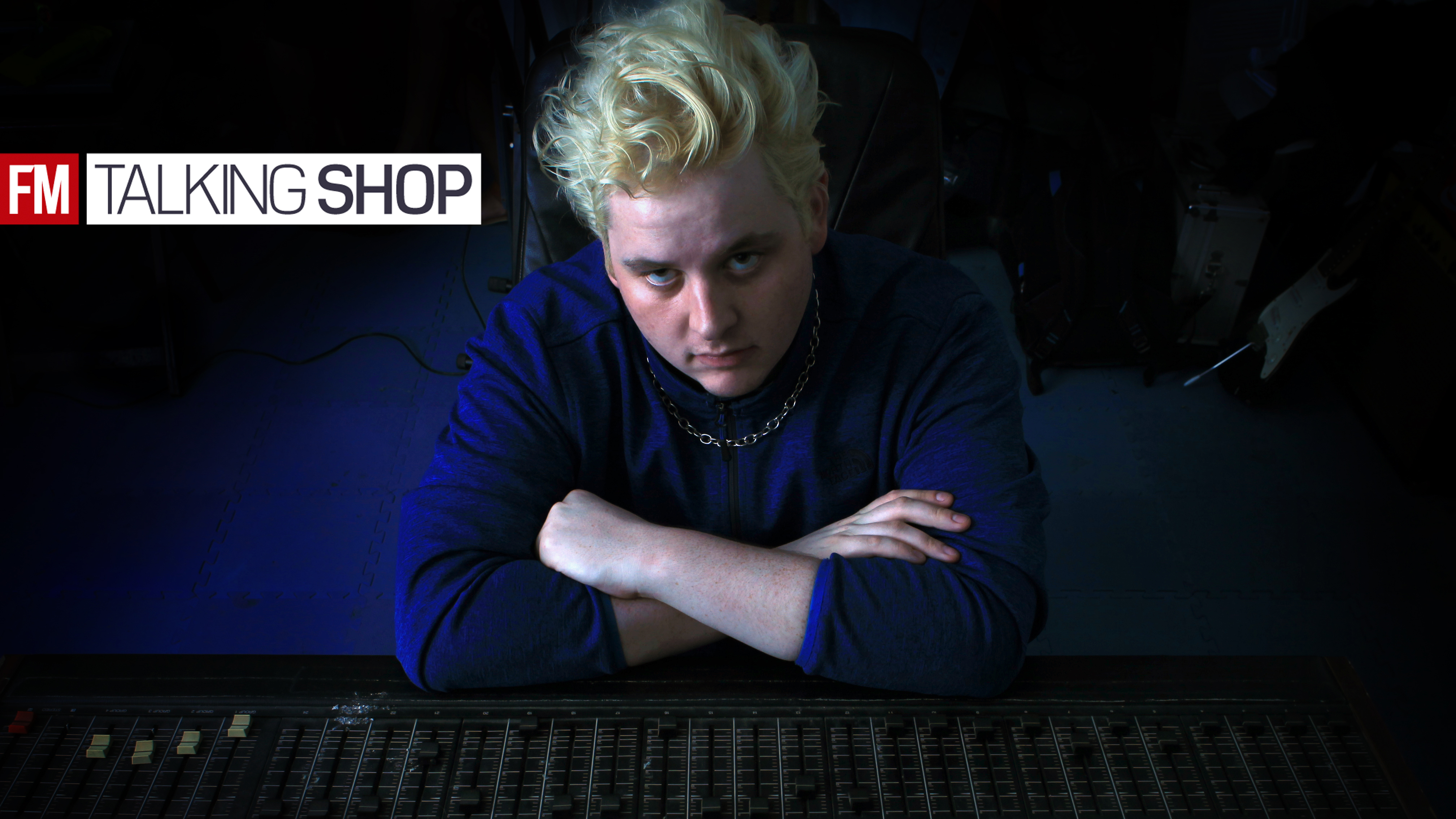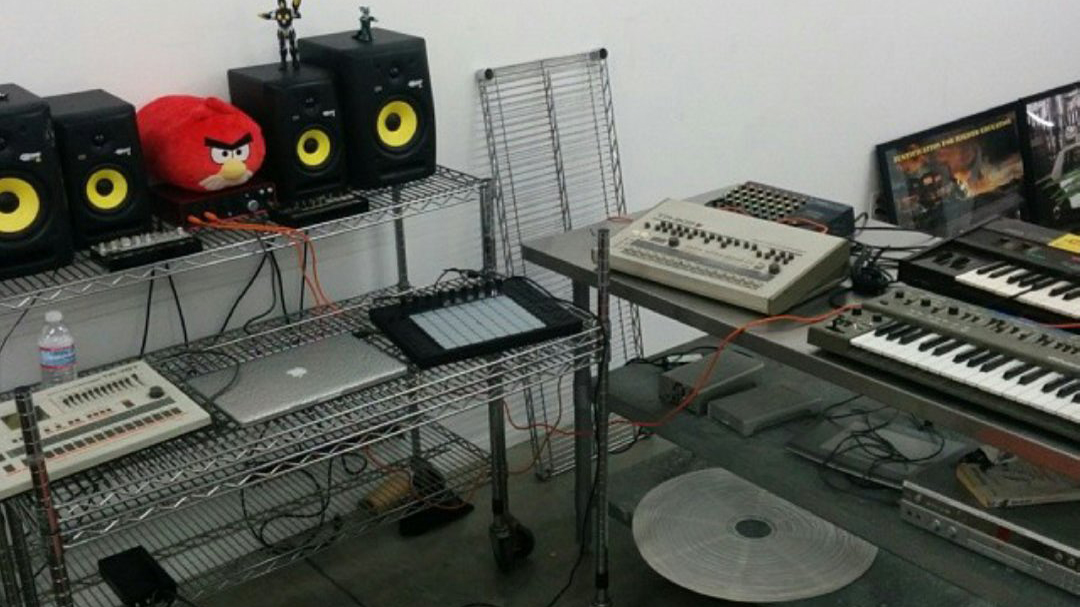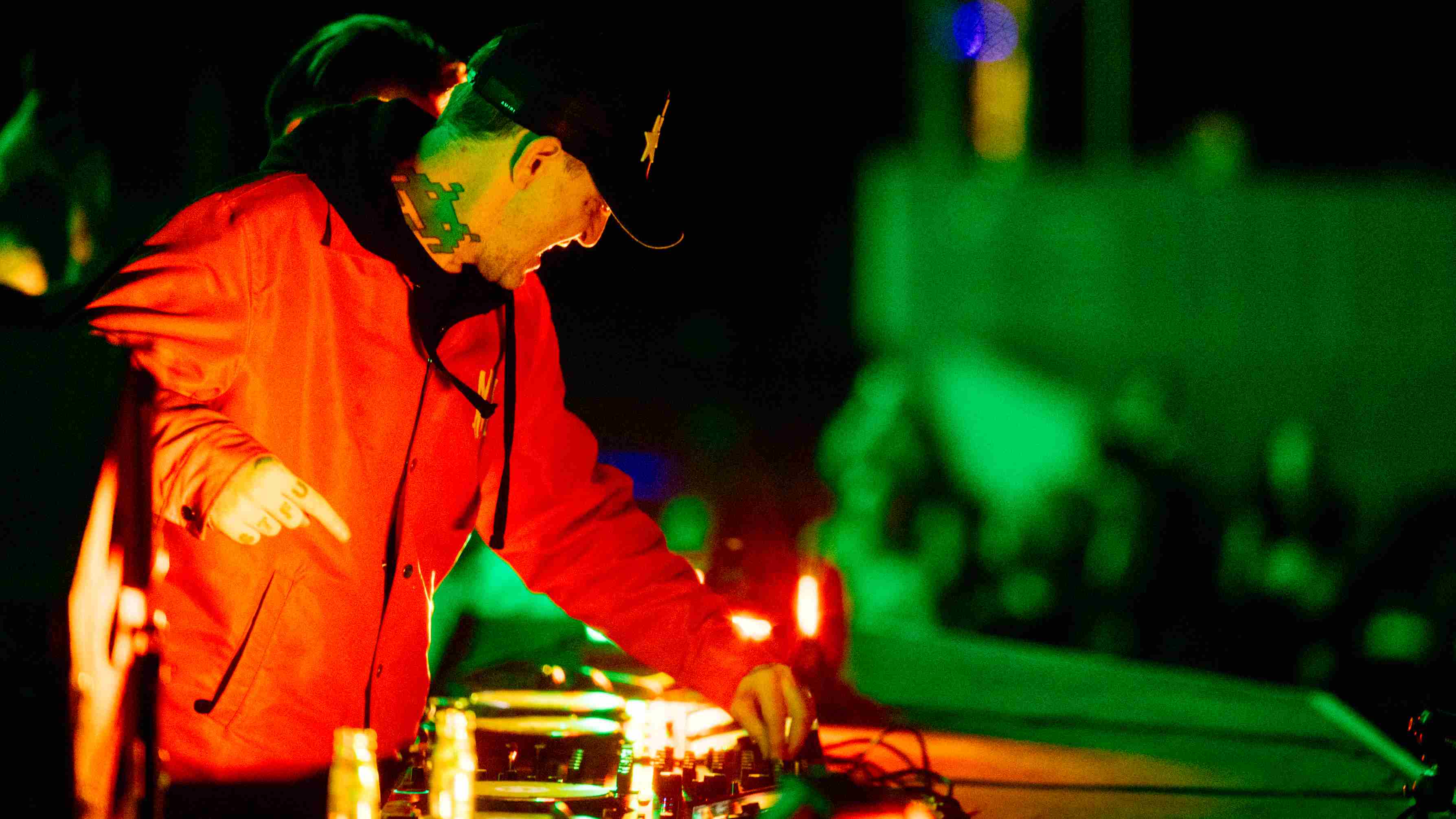Talking Shop: Groundislava
The Californian producer on the making of his new LP Frozen Throne

California-based producer Jasper Patterson (aka Groundislava) first broke through back in 2011 via a string of well received online releases that combined elements of chip tune, hip-hop, techno and esoteric synth pop.
As a key member of LA's Wedidit Collective, alongside the likes of Shlomo, RL Grime and Ryan Hemsworth, the months and years that followed have seen Patterson's star continue to rise, aided by a hectic schedule of releases, remixes, tour dates and mixes. With his third full length, Frozen Throne, out this month, FM caught up with the rising artist to chat about his love of hardware and his approach to production.
When did you start making music, and how did you first get started?
"I got started making tunes early in high school (around 2005) at the age of 15. It was more a hobby at that point. I got into it via an electronic music course at the public high school I was attending in LA. We spent a while learning about history and how to patch dated equipment, and a little bit about using Sonar or Cakewalk or whatever it's called.
"Eventually the teacher let us sorta just do our own thing and that's when I taught myself to use Reason. It wasn't until the age or 17 or 18 that I started to make stuff that I was really proud of, and by about 19 I started putting stuff online and putting stuff up via the Wedidit site."
Tell us about your studio/set-up
"I'm in the middle of moving my stuff right now, so it's all in a storage unit at the moment. On my first couple of albums I was used more software based sounds, mostly the NN-19 in Reason, and Operator in Live. During the production phase of Feel Me I started buying more hardware, and Frozen Throne, my new LP, in some ways spawned from my early experiments with all of my gear.
Get the MusicRadar Newsletter
Want all the hottest music and gear news, reviews, deals, features and more, direct to your inbox? Sign up here.
"Initially it was an EP, that was eventually scrapped save for a couple songs. I started fresh and thus Frozen Throne was born. In terms of specific pieces of gear, my main ones for my new album were my Yamaha SY77, Roland TR-909, Yamaha DX7, x0xb0x, and Roland SH-101. In terms of controllers, I use an Ableton Push heavily - it has a million functions. I have some other stuff but these pieces were the ones in constant use during production."

Groundislava's current live hardware set-up
What DAW (or DAWs) do you use, and why did you choose it?
"I use Ableton Live 9. I switched from Reason because Reason didn't use audio at the time, only MIDI, and I was starting to get more remix requests. I also couldn't figure out a way to use Reason to play live or DJ, so it was clear that I needed to learn some new software. Now Live has integration with the Push which I absolutely love. On the road the Push serves as my MIDI keyboard and drum machine/sequencer, and in the studio it does even more."
What one piece of gear in your studio could you not do without, and why?
"Either my SH-101 or any Yamaha FM synth. They're like the yin and yang of synthesis and I use both sides heavily. SH-101 is like pure analog organic monophonic synth energy, and the Yamaha FM synths are metallic, cold, crystalline and bright and shimmery. They're both indispensable."
What's the latest addition to your studio?
"Just bought an Elektron Analog-Four and have barely scratched the surface of it yet as I'm in the process of moving all my stuff. I can't wait to get absolutely lost in it."
What dream bit of gear would you love to have in you studio?
"I would love a real TB-303, but it's just not worth the money, especially when you can get a cheap pre-built x0xb0x or even the Roland AIRA clone, which sounds surprisingly real. I still think about it a lot though. The idea of having one in my studio, sitting next to my 909 is a dream of mine. I just can't justify shelling out around 2 grand for one. That's insane!"
When approaching a new track or project, where do you start?
"I usually just have my Push on my lap while I'm at the computer, with Operator running just a basic polyphonic square or saw synth. I'm always just jamming on it, playing melodies, occasionally flipping to the drum machine side to make a loop or something to jam along to. I try to just always be writing melodies, knowing that most aren't worth keeping. I really try to nail that before I touch anything else in a new song."
What are you currently working on?
"My new LP that I mentioned, Frozen Throne, is out this month, so right now I'm working on a lot of mixes for different sites and radio stations, and some remixes and originals just to bolster my DJ sets. I'm always making stuff, but when I'm working on an album it's a much different work flow."
Groundislava's essential production tips...
Mix in reverse
"Instead of bringing the gain up on something you want louder, consider that maybe everything else should be quieter. This is why I call it mixing in reverse. Bringing everything else down isn't always the solution, what's important is realising that just making a certain thing louder isn't always the solution either.
"It's so easy to be mixing for an extended session, only to realise you've slowly ended up with every track completely maximised, and zero headroom for mastering. You've probably heard this a billion times, but it's so easy to overlook. I used to ignore this tip because I could make my tracks really loud using lots of compression and maximizing everything, and it worked fine when I was just exporting them and never touching them after, but when I began actually releasing tunes and getting stuff mastered, I realised how I was actually just shooting myself in the foot."
"Mastering is art and if you have a talented person doing your mastering and you leave them plenty of room to work with, they can really make your tracks sound incredible!"
Try making your next track via a method you're not familiar or comfortable with!
"Do you usually start by writing melody on a MIDI keyboard? Try writing in melody on the piano roll with your mouse. Do you usually sequence drums manually? Try punching them in on drum pads, even if you're going to completely quantise it. The point being that, if you switch variables in the process, the end result will almost always be different, and that's what important.
"I think one of the most gratifying feelings is when you make something you had no idea you were capable of making. I learned this lesson when I started using hardware and forcing myself to not use the computer, even if I would end up recording it into live or even sequencing in live. The point is to try something unfamiliar just to see what happens."
Instead of trying to hoard plug-ins and patches and sounds, try using basic stuff and figuring out how it works, so you can just make your own
"I use Live heavily, but its very rare that I use soft-synths other than Operator. It's a perfectly capable FM synth and if you know how to build a sound with it, you can make basically whatever you want. When I got started in Reason, I would always use the NN-19 sampler and just load up a basic square or saw tone and just build from there, tweaking the ADSR and filters and LFOs. I think this was partially because I had no idea what I was doing, but I inadvertently learned a lot about how each parameter affects the sound, and about synthesis in general.
"When I bought my first hardware synth (Juno 106) I already knew what all the controls did. I'm not trying to say you shouldn't use plugins, but you definitely should spend some time figuring out how they work if you don't know already, as most of the concepts are pretty much universal and are just good to know.
"It's also another whole layer of creativity that will define you as an artist - sound design! It's a great feeling when you make an amazing patch from scratch and save it and then re-open it to use later, knowing already exactly what it will sound like, and what exactly to tweak to match your new project."


Future Music is the number one magazine for today's producers. Packed with technique and technology we'll help you make great new music. All-access artist interviews, in-depth gear reviews, essential production tutorials and much more. Every marvellous monthly edition features reliable reviews of the latest and greatest hardware and software technology and techniques, unparalleled advice, in-depth interviews, sensational free samples and so much more to improve the experience and outcome of your music-making.
“A fabulous trip through all eight songs by 24 wonderful artists and remixers... way beyond anything I could have hoped for”: Robert Smith announces new Cure remix album
“I have an original 909 – every time I try to use it I feel like I’m ruining it”: House hero Riva Starr on his studio essentials and his love of analogue synths










